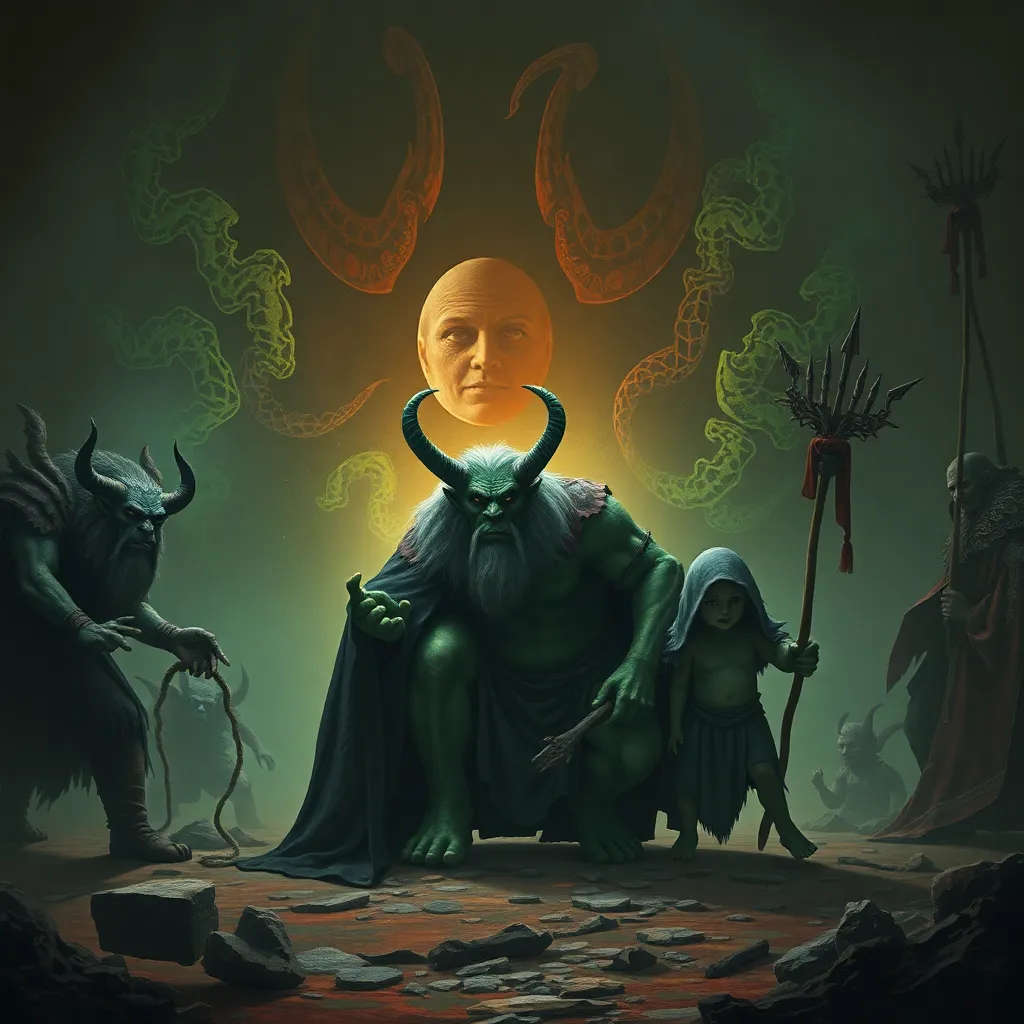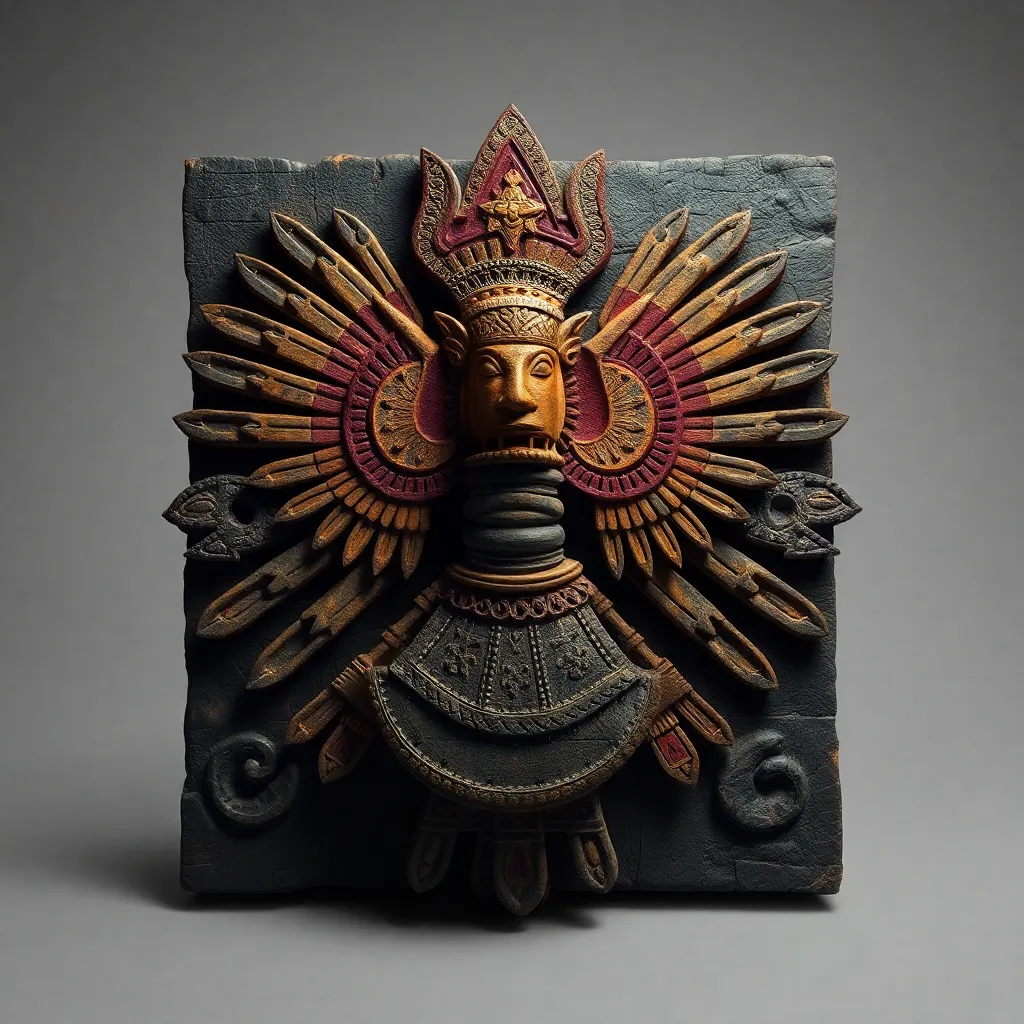The Orcish Family: Exploring Concepts of Family & Lineage in Orcish Mythologies
I. Introduction to Orcish Culture
Orcish mythologies are rich tapestries woven from the threads of history, legend, and cultural identity. These narratives often reflect the values, struggles, and aspirations of Orcish societies, serving as a lens through which to understand their unique worldview. Central to these mythologies is the concept of family and lineage, which play critical roles in shaping individual identities and collective destinies.
In Orcish society, family is not merely a social unit; it is the foundation upon which tribal cohesion is built. The significance of familial ties extends beyond the immediate household, reaching into the broader clan structures that govern Orcish life.
II. The Structure of Orcish Families
Traditional Orcish families typically consist of extended family units, which may include parents, children, grandparents, and other relatives. These units are often organized around tribal affiliations, with multiple families forming larger clans.
A. Traditional family units in Orcish tribes
Orcish families are generally patriarchal, with the male head of the household taking on leadership roles. However, the dynamics can vary significantly between different tribes:
- Nuclear Families: In some tribes, nuclear family structures are common, where immediate family members live together and share resources.
- Extended Families: Other tribes emphasize the importance of extended families, where multiple generations reside together, fostering close-knit relationships.
B. Roles and responsibilities within the family
Within Orcish families, roles are often clearly defined:
- Males: Typically serve as protectors and providers, engaging in hunting, gathering, and warfare.
- Females: Are often responsible for nurturing children and managing household affairs, although many also take on warrior roles.
C. The concept of clans and extended families
Clans are vital to understanding Orcish family dynamics. A clan comprises multiple families united by bloodlines, shared ancestry, and traditions. This broader structure enhances social cohesion and facilitates alliances and cooperation among different groups.
III. Ancestry and Lineage in Orcish Mythology
In Orcish culture, ancestry is revered and plays a pivotal role in individual identity. The lineage is often traced back to legendary figures and ancestors, instilling a sense of pride and belonging.
A. The significance of ancestry in Orcish identity
Orcish identity is deeply intertwined with ancestral heritage. Many Orcs take great care to honor their forebears, believing that their actions influence the present and future.
B. Mythological tales that emphasize lineage
Numerous mythological tales highlight the importance of lineage, often featuring heroic ancestors who set the path for future generations. These stories serve both as cautionary tales and as inspiration for Orcish youth.
C. The role of ancestors in shaping Orcish values
Ancestors are not just historical figures; they are active participants in the lives of their descendants. Rituals honoring ancestors reinforce their influence, ensuring that Orcish values such as bravery, loyalty, and honor are passed down through generations.
IV. Female Figures in Orcish Family Narratives
While Orcish societies are often portrayed as male-dominated, female figures hold significant power and influence within family narratives.
A. The role of Orcish mothers and matriarchs
Mothers in Orcish families are revered as the heart of the household. They are responsible for educating children in cultural practices and values, often serving as the primary transmitters of tradition.
B. Female warriors and leaders in Orcish folklore
Orcish folklore features numerous female warriors and leaders who defy traditional gender roles. These figures exhibit strength, courage, and leadership, inspiring generations of Orcs.
C. Examination of gender dynamics within family structures
Gender dynamics in Orcish families are complex. While males traditionally assume leadership roles, females often wield significant influence, especially in matters concerning family decisions and tribal alliances.
V. The Influence of Orcish Family on Society
The interconnectedness of family ties significantly impacts Orcish society, shaping alliances and conflicts among tribes.
A. How family ties affect tribal alliances and conflicts
Families often form the basis for tribal alliances, with intermarriage between clans serving to strengthen bonds. Conversely, familial disputes can lead to conflicts between tribes.
B. The impact of family on social hierarchy and leadership
Social hierarchy in Orcish societies is often influenced by family status. Families of noble lineage tend to hold leadership positions, while common families may have less influence.
C. Rituals and traditions that strengthen familial bonds
Rituals play a crucial role in reinforcing familial bonds. Ceremonies celebrating births, marriages, and funerals help to unite families and honor their shared heritage.
VI. Comparisons with Other Mythologies
Examining Orcish family structures alongside other mythologies reveals both similarities and differences.
A. Similarities and differences with human family structures in myth
Like many human mythologies, Orcish tales emphasize the importance of family. However, Orcish narratives often highlight themes of strength and conflict more prominently than many human myths.
B. Insights gained from examining Orcish family concepts alongside other cultures
Exploring Orcish family structures in comparison with other cultures illuminates universal themes of family loyalty, honor, and the role of ancestry in identity.
C. The universal themes of family in mythology
Across cultures, the theme of family serves as a foundation for societal norms, values, and narratives. Orcish mythology is no exception, highlighting the intricate connections between family and identity.
VII. Contemporary Interpretations of Orcish Family
In modern media and literature, Orcish families are often portrayed through a new lens that reflects contemporary values and perspectives.
A. Representation of Orcish families in modern media and literature
Contemporary interpretations of Orcish families often challenge traditional stereotypes, showcasing the complexity and depth of Orcish culture.
B. How contemporary views of family influence traditional Orcish narratives
Modern narratives sometimes adapt Orcish family structures to incorporate themes of inclusivity and diversity, reshaping the perception of Orcish lineage.
C. The evolution of Orcish family concepts in current fantasy genres
As fantasy genres evolve, Orcish family concepts are reimagined, often blending traditional elements with modern sensibilities to create more relatable characters and stories.
VIII. Conclusion
The exploration of family and lineage in Orcish mythologies reveals their fundamental role in shaping identity and culture. Understanding these concepts provides valuable insights into the Orcish worldview and societal dynamics.
In summary, the importance of family in Orcish culture remains a relevant topic, reflecting both historical roots and contemporary interpretations. As we continue to explore Orcish lore, we gain a deeper understanding of the values that define this rich cultural heritage.
For those interested in further exploration, delving into specific Orcish myths, folklore, and contemporary literature can offer additional perspectives on the intricate dynamics of Orcish family and lineage.



